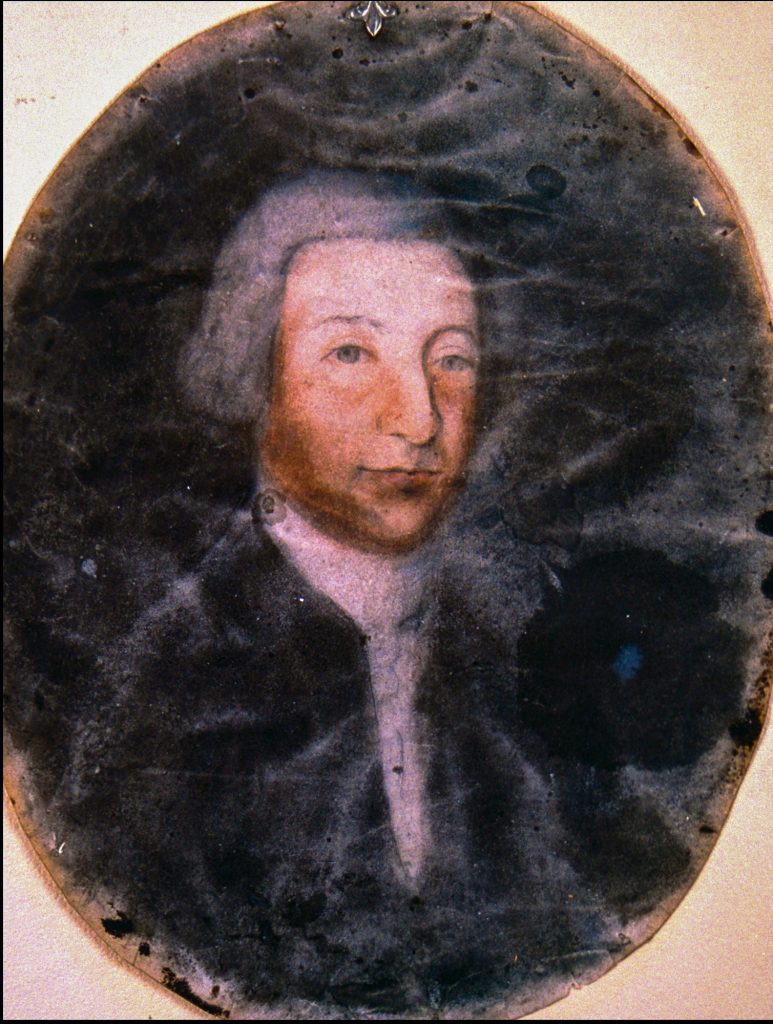When Duarte Lopez fled Portugal with his wife Anna and daughter Catherine, he was, of course, fleeing the persecution of the Inquisition. However, he was also moving towards economic possibilities offered by the city of Newport, where his brother Moses arrived several years earlier and his cousins, the Riveras, were well established in shipping. As soon as the family arrived in America, they abandoned the Christian mores they had known in Spain, and even changed their names—Duarte was now Aaron, Anna Abigail, and Catherine Sarah.
The family connections proved indeed helpful, and Lopez quickly emerged as one of the leading businessmen in his new home, closely associated with his relative Jacob Rodriguez de Rivera. Established in the slave and sugar trade, Lopez soon counted among his holdings numerous ships sailing back and forth to the Caribbean and commanded, as well, whaling fleets dispatched to the Arctic.
In addition to his prominence in business, Lopez also found himself among the leaders of Newport’s Jewish community. He served several times as the parnas of the congregation then called Nefutse Yisrael—the Scattered of Israel—though it would later be renamed Jeshuat Yisrael—the Salvation of Israel. Lopez even had the honor of laying the cornerstone of the building when construction began on the synagogue.
After living nine years in Newport, Lopez applied for naturalization. His request, along with that of another Jew, Isaac Elizer, was denied by the Rhode Island Superior Court. They appealed to the legislature, which agreed to approve their applications if the men would return to court and take an oath of allegiance, adding the following qualification concerning Lopez’s appeal:
Inasmuch as the said Aaron Lopez hath declared himself by religion a Jew, this Assembly doth not admit himself nor any other of that religion to the full freedom of this Colony. So that the said Aaron Lopez nor any other of said religion is not liable to be chosen into any office in this colony nor allowed to give vote as a free man in choosing others.
However, when their appeal was heard in the upper house of the Rhode Island Legislature, it was deemed within the jurisdiction of the courts, not the legislature. The Superior Court agreed to re-hear the case. Ezra Stiles, a friend of Lopez, was present that day and recorded his observations. After several felons—thieves and arsonists—were sentenced to hang, Lopez’s appeal was heard. “The Jews” Stiles recorded, “were called to hear their almost equally mortifying sentence and Judgment: which dismissed their Petition for Naturalization.” The court when on say:
Further by the charter granted to this colony, it appears that the free and quiet enjoyment of the Christian religion and a desire of propagating the same were the principal views with which this colony was settled, and by a law made and passed in the year 1663, no person who does not profess the Christian religion can be admitted free [that is, as a voter or office holder] to this colony
Stiles mused on the verdict: “I remark that Providence seems to make every Thing to work for Mortification to the Jews, & to prevent their incorporating into any Nation; that thus they may continue a distinct people.” Lopez, however, found himself less contemplative about the matter. Having exhausted the possibilities in Rhode Island, he successfully applied for naturalization in Massachusetts in 1762.
That same year tragedy struck, and his wife, Abigail, only thirty-six, died. The following year he remarried to Sarah Rivera, daughter of his friend and associate Jacob Rodriguez Rivera. They had nine children together, the same number he had from his first marriage.
When the British occupied Newport during the Revolution, Lopez and his family fled to Leicester, Massachusetts. They waited out the war there, and on his return to Newport, Lopez died in a tragic carriage accident. Stiles wrote of Lopez, upon hearing of his death, that he was an “amiable, benevolent, most hospitable & very respectable gentleman … without a single Enemy & and the most universally beloved by an extensive Acquaintance of any man I ever knew.”
